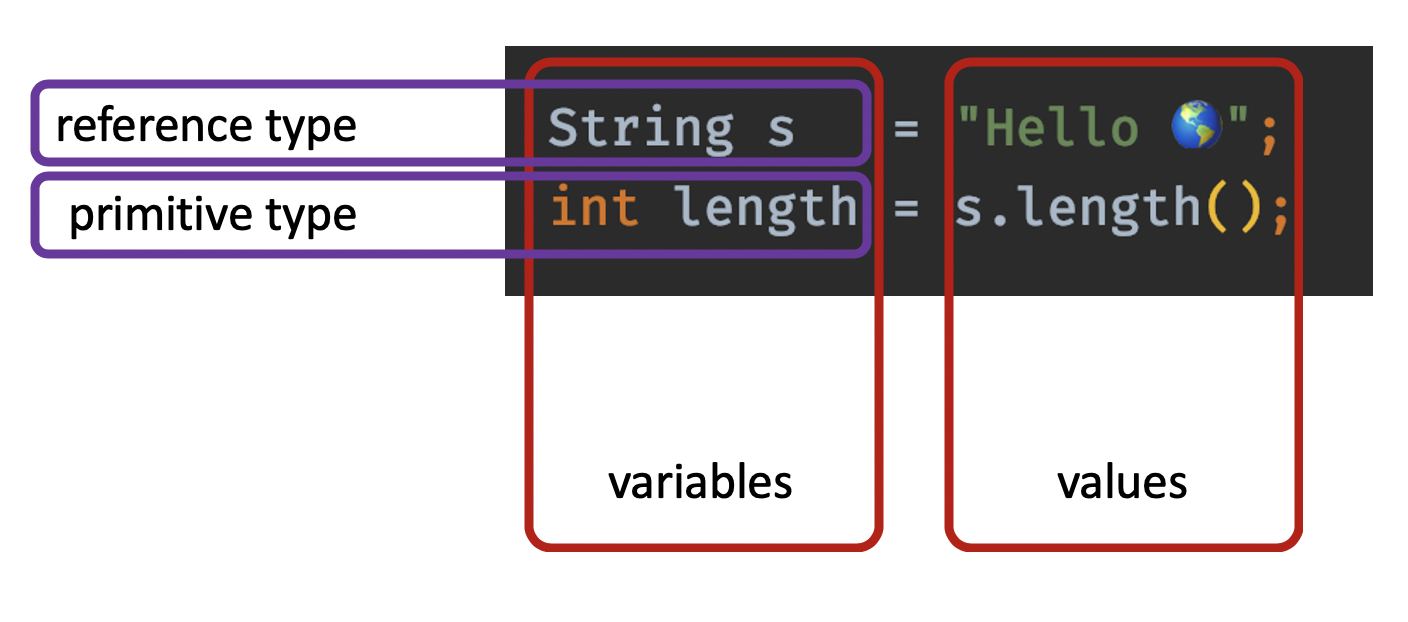Reference types (the rest)
Table of contents
What are the reference types?
The String type, like anything else that is not a primitive type, is a reference type. We can create as many new reference types as we need.
By convention, reference types start with a capital letter. It is a String and not a string. Nothing stops us from creating our own reference type using lower-case, but this is discouraged.
One of the main differences between primitive and reference types, is that the latter support functionality (methods).
Consider the following example.
package demo;
public class App {
public static void main( String[] args ) {
String s = "Hello 🌎";
int length = s.length();
System.out.printf( "The string '%s' is %d bytes (not necessary letters) long%n", s, length );
}
}
The String type has a method called length(), which returns the number of bytes (not necessary the number of letters as some of these may be more than one byte long) the string requires to store our string in memory. The above program prints.
The string 'Hello 🌎' is 8 bytes (not necessary letters) long
Variables and their values
It is important to make the distinction between variables, types and values.

Observations:
- Variables must have a type
- Variables’ type does not change throughout their existence
- Variables can contain values of the same type (or a type can be safely stored by the variable)